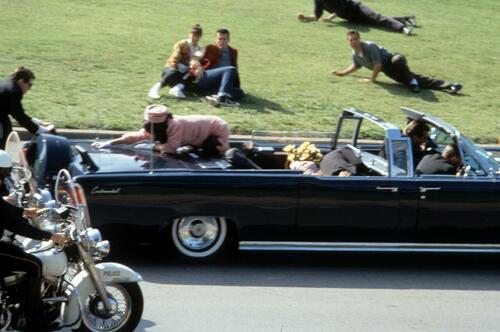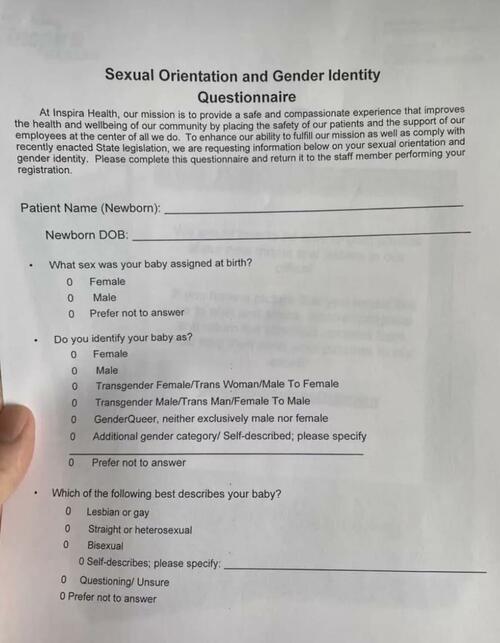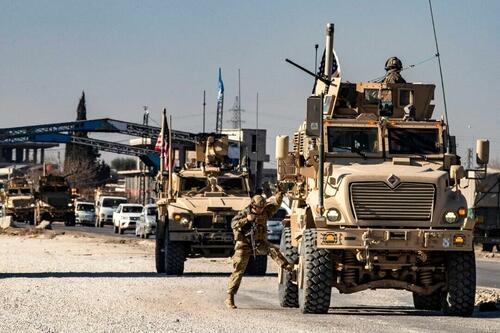MSNBC Anchors Forced To Correct Themselves In False Tulsi Gabbard Claim
MSNBC Anchors Forced To Correct Themselves In False Tulsi Gabbard Claim
Authored by Luis Cornelio via Headline USA,
Two MSNBC hosts were forced to eat their own words on Tuesday after blindly repeating a now-retracted AP report about Director of National Intelligence Tulsi Gabbard supposedly referring to President Donald Trump and Russian leader Vladimir Putin as “very good friends.”
MSNBC set the record straight last night and corrected false reporting about DNI Tulsi Gabbard. pic.twitter.com/b7MZEW1zwj
— Alex Pfeiffer (@Pfeiffer47) March 19, 2025
The AP had to walk back its demonstrably false report, as it was revealed Gabbard had been talking about Trump and Indian Prime Minister Narendra Modi.
Ali Velshi and Stephanie Ruhle, the insufferable anchors of The Last Word and 11th Hour, respectively, were left scrambling after parroting the AP’s debunked claim in a desperate attempt to smear the Trump administration.
As reported by the Daily Caller, Velshi said his show had “reported on excerpts of an interview between the Director of National Intelligence, Tulsi Gabbard, and an Indian TV news network in which she said that Trump was good friends with the world leader.”
He added, “Now we said that world leader was Vladimir Putin, but the full interview was subsequently released and it showed that Gabbard was referring to Donald Trump and the Indian Prime Minister Narendra Modi.”
Ruhle echoed Velshi’s retraction nearly verbatim, which was likely written by attorneys to avoid legal repercussions.
“Last night, we reported on excerpts of an interview between the Director of National Intelligence, Tulsi Gabbard and an Indian TV news network in which she said that Trump was good friends with a world leader,” Ruhle said, according to the Caller.
“Now we said that world leader was Vladimir Putin, but the full interview shows that Gabbard was referring to Trump and Indian Prime Minister Modi. We cleared that up,” she admitted.
The AP itself issued a press statement retracting its false claim:
“The Associated Press has withdrawn its story about U.S. Director of National Intelligence Tulsi Gabbard saying President Donald Trump and Russian President Vladimir Putin ‘are very good friends.’ Gabbard was talking about Trump and Indian Prime Minister Narendra Modi. The AP will publish a corrected version of the story.”
Alexa Henning, Gabbard’s spokesperson and seasoned Republican communicator, minced no words in response to the AP, scolding their reporting as “total trash.”
“This is why no one trusts the maliciously incompetent and purposefully bias media,” Henning said.
“If this isn’t a clear example of pushing a solely political narrative, then nothing is.”
Trump on banning the AP from the Oval Office & Air Force One:
“That’s the way life works. Thank you for the question.” 
— Breaking911 (@Breaking911) February 18, 2025
The AP scandal comes just weeks after Trump revoked the news outlet’s special access to the Oval Office, citing their misleading and false reporting.
Tyler Durden
Thu, 03/20/2025 – 17:40…




 pic.twitter.com/KBEh6pOZLW
pic.twitter.com/KBEh6pOZLW




